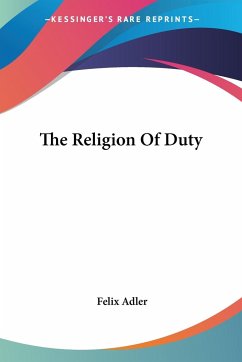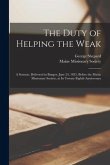This scarce antiquarian book is a facsimile reprint of the original. Due to its age, it may contain imperfections such as marks, notations, marginalia and flawed pages. Because we believe this work is culturally important, we have made it available as part of our commitment for protecting, preserving, and promoting the world's literature in affordable, high quality, modern editions that are true to the original work.
Bitte wählen Sie Ihr Anliegen aus.
Rechnungen
Retourenschein anfordern
Bestellstatus
Storno


![A Message to Ministers [microform]. The Character and Duty of a Christian Preacher A Message to Ministers [microform]. The Character and Duty of a Christian Preacher](https://bilder.buecher.de/produkte/65/65550/65550302m.jpg)





![A Sermon on the Duty of Attending the Public Worship of God [microform]: Preached at Digby in Nova Scotia, April 19th, 1789 A Sermon on the Duty of Attending the Public Worship of God [microform]: Preached at Digby in Nova Scotia, April 19th, 1789](https://bilder.buecher.de/produkte/65/65500/65500238m.jpg)